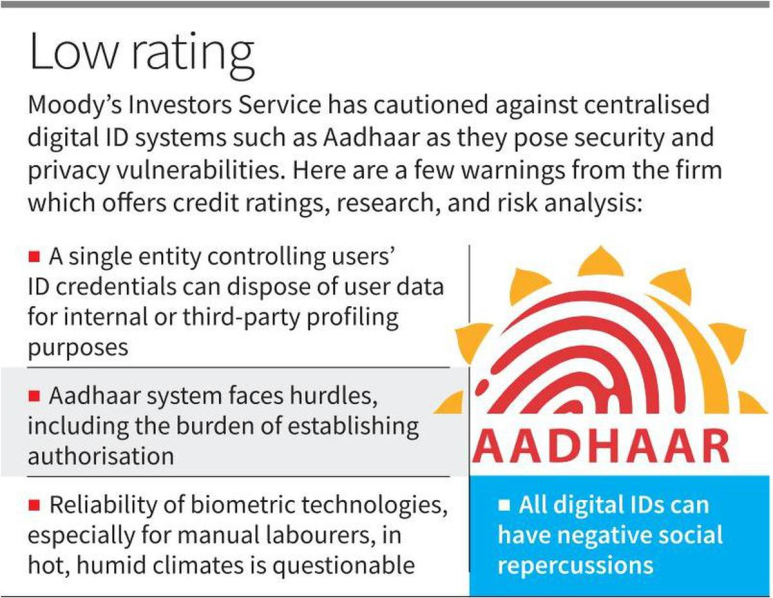Free Courses Sale ends Soon, Get It Now


Free Courses Sale ends Soon, Get It Now



Copyright infringement not intended
Picture Courtesy: timesofindia
Context: Global rating agency Moody's Investors Service has raised concerns about the reliability of biometric technologies used in Aadhaar, especially in hot and humid climates, and the resulting service denials. The Indian government has vehemently rejected Moody's claims, defending Aadhaar's integrity and its role as the most trusted digital ID in the world.
Moody's Concerns about Aadhaar

Indian government counters Moody's claims with the following points:
These concerns hold immense importance for several compelling reasons:
Steps to enhance the efficiency of Aadhaar
Conclusion
Must Read Articles:
AADHAR AMBIT: https://www.iasgyan.in/daily-current-affairs/aadhar-ambit
|
PRACTICE QUESTION Q. In light of Moody's concerns about the reliability of biometric technologies in India's Aadhaar program, how is the Indian government addressing these challenges, and what steps are being taken to enhance the efficiency and dependability of the Aadhaar system, especially in hot and humid climates? |
© 2024 iasgyan. All right reserved